Going green isn’t just a trend confined to land, you know. It’s reaching the open seas as well. In fact, eco-friendly boating Travel Tips and Strategies provides a comprehensive guide on how you can take your love for boating and infuse it with eco-conscious strategies. It’s all about ensuring your seafaring adventures run in harmony with nature, from using less damaging fuel resources to sea life-friendly boating practices. This guide sets out to transform your boating experience into responsible travel, assisting in the preservation of the marine world for generations to come. What are you waiting for? Get your sea legs ready for this greener journey!
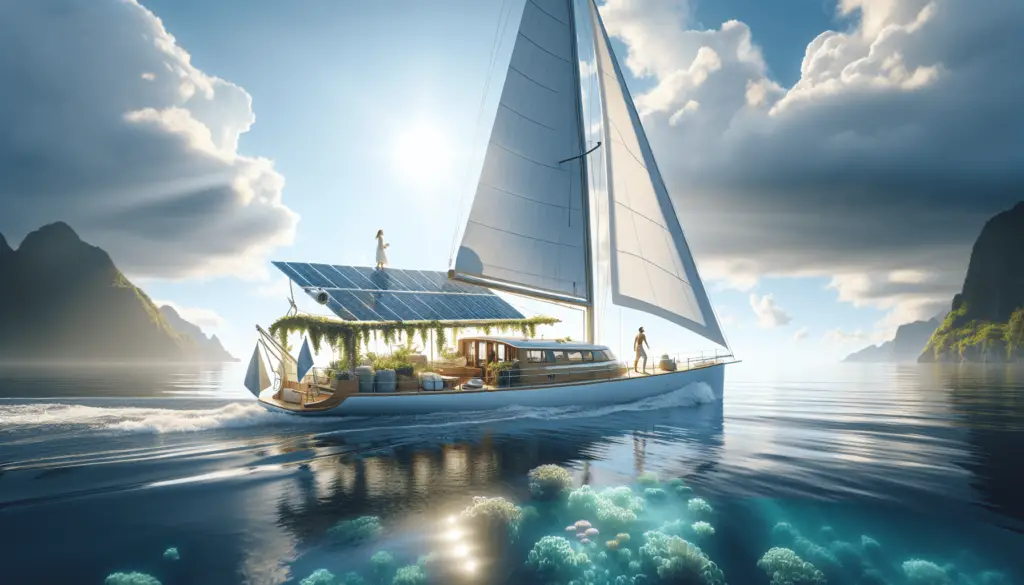
Understanding the Importance of Eco-Friendly Boating
Engaging in eco-friendly boating practices has become a pressing matter as we become increasingly aware of our environment’s vulnerability. With the advent of green technologies, there’s no better time to be conscious of how your boating habits can affect our precious marine ecosystems.
The environmental impact of boating
Boats, especially those powered by fossil fuels, emit methane and carbon dioxide that can dissolve into sea water and increase its acidity. This, in turn, can harm the marine fauna and flora. Additionally, noise created by the boats can result in challenges to marine wildlife, from disturbing their feeding cycles to causing stress.
Benefits of eco-friendly boating
Eco-friendly boating has numerous benefits, both for the environment and boat owners. Green boating techniques conserve resources, reduce emissions and minimize the negative impact on wildlife. For boat owners, fuel efficiency can be greatly improved reducing costs over time. Lastly, it fosters an increased appreciation for marine life and nature, enhancing your boating experiences.
Preserving marine ecosystems
Through eco-friendly boating, you will aid in preserving our vital marine ecosystems. Reducing pollution from engine emissions, waste, and noise can all contribute to healthier ocean habitats. Besides, it also aids in the conservation of marine species, ensuring they can thrive for future generations to enjoy.
Eco-Friendly Boat Selection
There are numerous decisions to make when shopping for a boat, and it’s important to consider the environmental implications of your choices.
Choosing a green boat
Green boats are designed with the environment in mind. They utilize materials and designs that diminish impact on marine environments. They also are also designed to run more efficiently, saving cost on fuel and maintenance over time.
Solar and wind powered boats
Solar and wind-powered boats are perfectly suited to the eco-friendly boater. They run on the unlimited energy provided by the sun and the wind, eliminating the need for fossil fuels entirely. These boats also promise silent, emission-free voyages that is a big win for our marine life.
Electric propulsion systems
Electric propulsion systems are also an exceptional eco-friendly alternative, with zero emissions and whisper quiet operation. The technology has advanced so much in recent years and now offers similar performance to conventional engines but with much lower impact on the environment.
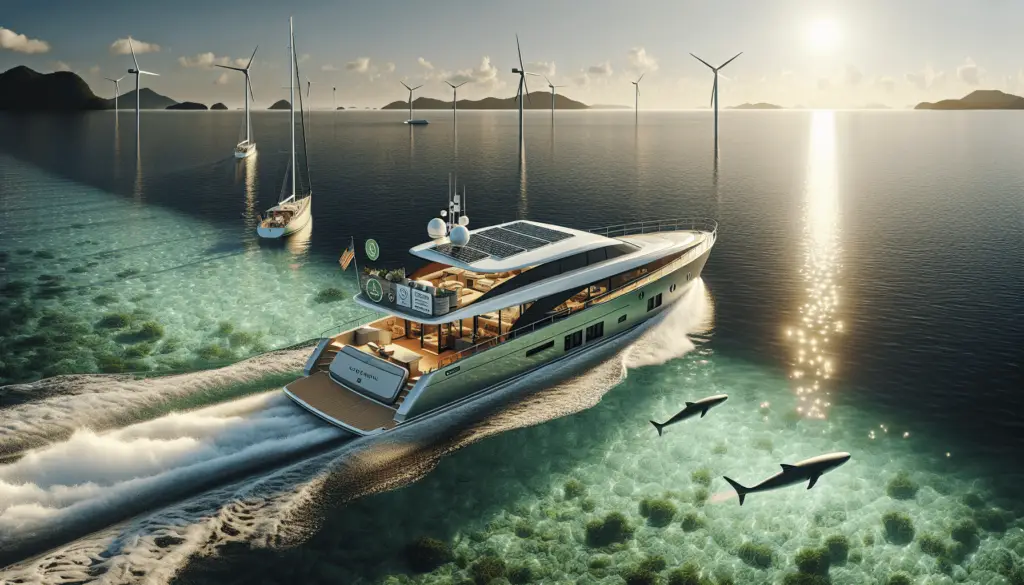
Utilizing Green Boat Maintenance Techniques
Maintaining your boat in an eco-friendly manner can ward off many potential environmental problems.
Non-toxic antifouling treatments
Antifouling paints ensure that algae and barnacles don’t adhere to the hull of your boat. Opting for non-toxic alternatives guarantees that you aren’t depositing harmful chemicals into the sea with each voyage.
Reducing waste and recycling old materials
When maintaining or overhauling a boat, consider reusing and recycling resources wherever possible. Many parts can be refurbished or recycled, and opting for eco-friendly replacements can make a notable difference.
Regular maintenance for increased efficiency
Regularly maintaining your boat results in better fuel efficiency, and reduces the chance of oil or gas leaks. This not only saves you money but also significantly decreases your boat’s carbon footprint.
Sustainable Fuel Choices
Choosing the right kind of fuel can greatly reduce your boat’s environmental impact.
Using biofuels for marine engines
Biofuels are produced from plant and animal products and burn much more cleanly than conventional marine fuels. Making the switch to biofuels can reduce your greenhouse gas emissions and dependence on fossil fuels.
The benefits of hydrogen and electric power
With advancements in technology, hydrogen and electric boating are becoming more accessible. Use of such fuels can significantly decrease the CO2 emissions making the marine environment cleaner and better.
Understanding carbon offsetting for boat fuel
Carbon Offsetting enables you to offset the emissions you cannot reduce by investing in projects that reduce CO2 elsewhere. This is an essential step towards a neutral carbon footprint and sustainable boating.
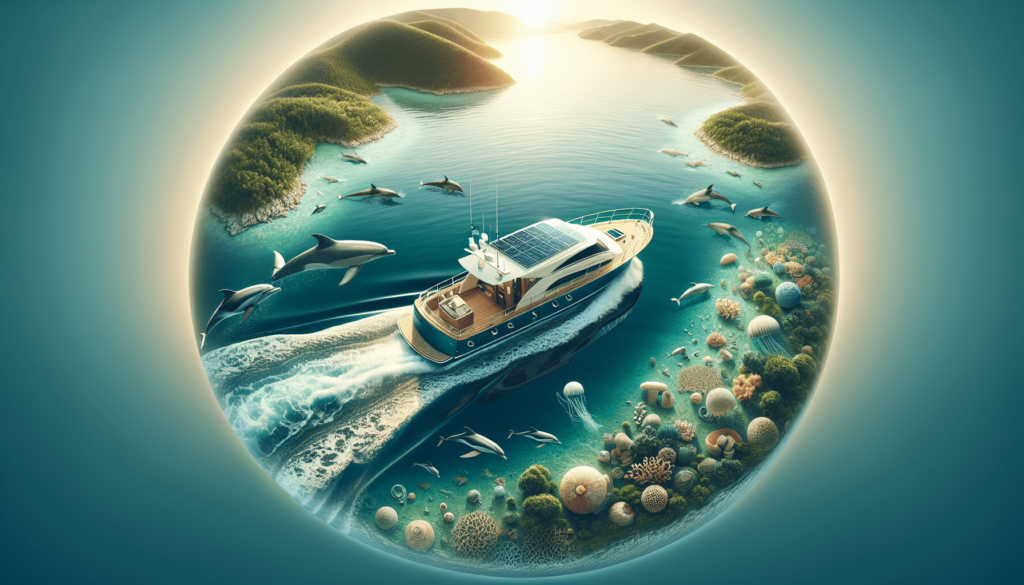
Eco-Friendly Anchoring Techniques
Eco-friendly anchoring techniques aid in the preservation of underwater ecosystems and marine life habitats.
Why traditional anchoring can harm the environment
Traditional anchors can cause damage to the seabed and can disturb underwater habitats and species. Damage done by anchors on corals can take many years to restore.
Choosing eco-friendly anchors
Eco-friendly anchors are designed to minimize their impact on the sea floor. Opting for sustainable choices here can help preserve marine ecosystems and create a positive impact.
Techniques for safe and sustainable anchoring
By learning how to anchor correctly and responsibly, you can minimize your damage to the sea bed. Choosing the right anchor for the location, and opting for established mooring fields where available, can also play a pivotal role.
Responsible Waste Management
Improper waste disposal is a threat to our oceans and a major concern in boating.
Managing waste on-board
Adopting a zero-waste strategy on your boat can drastically reduce the amount of waste that ends up in our oceans. This includes using durable items as opposed to disposable and ensuring proper disposal of trash.
Avoiding the discharge of waste into the sea
All waste originating from your boat should never be thrown overboard, especially plastic and hazardous materials, which are harmful to marine life. Ensure that you dispose of these wastes adequately on land.
The importance of recycling and composting
Implementing recycling and composting systems on your boat can drastically reduce the amount of waste that needs to be disposed of. Composting organic waste is also a fantastic addition and contributes to a reduction of landfill waste.
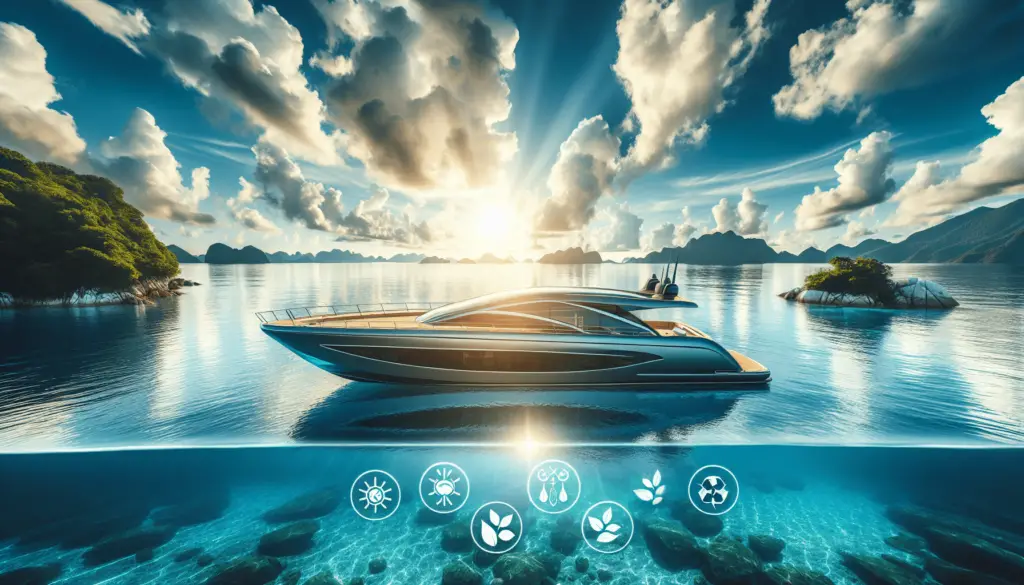
Practicing Responsible Wildlife Interaction
Interactions with wildlife should be done responsibly and carefully to prevent unsettling or harming marine creatures.
Advantages of observing wildlife from a distance
Watching wildlife from a distance enables natural behavior and prevents any disturbance or stress to the animals.
Prohibition of feeding marine wildlife
Feeding can make wildlife reliant on humans for their food and can also lead to health issues. It is important to maintain their natural feeding habits and not interfere.
Understanding the impact of noise pollution on marine life
Marine creatures are sensitive to noise and can be significantly impacted by it. Using low noise equipment and maintaining a respectful noise level on your boat is imperative.
Sustainable Food and Supply Choices
Your choices for food and supplies onboard can have an impact as well.
Choosing locally sourced food
Opting for locally sourced foods not only supports local economies but also reduces your carbon footprint by eliminating long transport distances.
Using reusable and biodegradable products
Switching to reusable and biodegradable products, such as cups, plates, and utensils, is a simple step that can significantly reduce your waste output and plastic pollution.
Minimizing single-use plastics
Single-use plastics are a major pollutant in our oceans. Swapping single-use items with reusable options wherever possible goes a long way in preserving our marine environment.
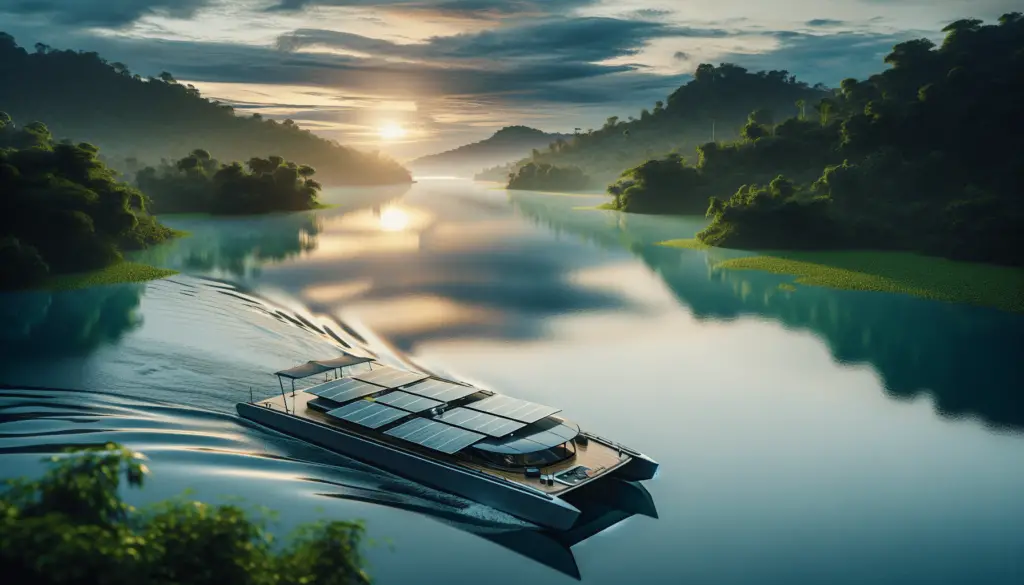
Adopting Water and Energy Conservation Techniques
Conserving energy and water on your boat can create significant environmental benefits.
Reducing water usage on-board
Implementing strategies to reduce water usage, such as more efficient appliances or mindful usage, can decrease your impact on freshwater resources.
Using energy-efficient appliances and methods
Energy-efficient appliances use less power and can significantly reduce the energy consumption of your boat, leading to less fuel use and lower emissions.
Importance of turning off lights and equipment when not in use
Not only does it save battery and limit your power usage, but it also lessens the light pollution that can impact nocturnal marine life.
Green Boating Laws and Certification Programs
There are numerous laws and regulations in place designed to encourage eco-friendly boating.
Laws surrounding eco-friendly boating
Various regions have laws in place that protect their marine environments. Familiarizing yourself with these laws is the first step towards responsible boating.
Certification programs for green boating
A range of certification programs promotes and recognises eco-friendly boating. These programs provide guidelines for sustainable boating and recognition for those who adopt these eco-friendly practices.
How adherence to these initiatives can make a difference
By adhering to these laws and certification programs, you play a part in the broader effort to protect our ocean environments. Every small step towards green boating contributes to a bigger movement towards preserving our marine ecosystems.

